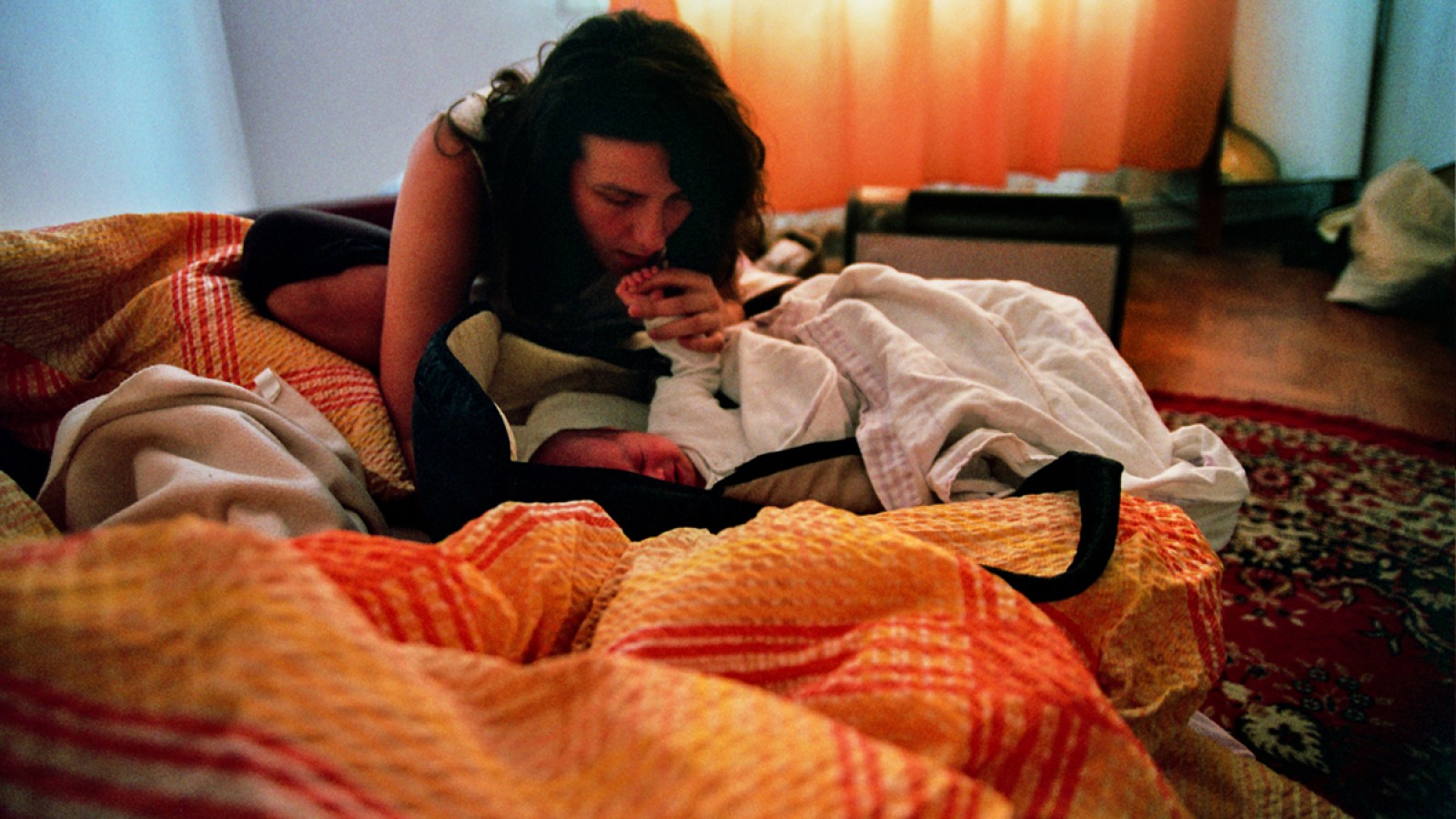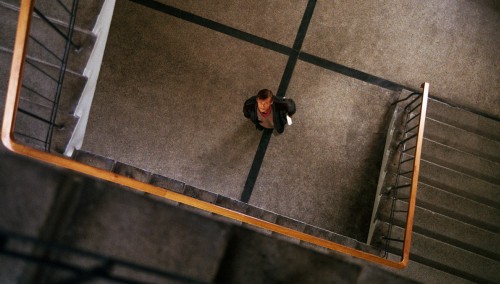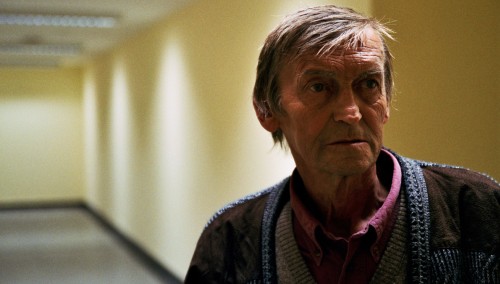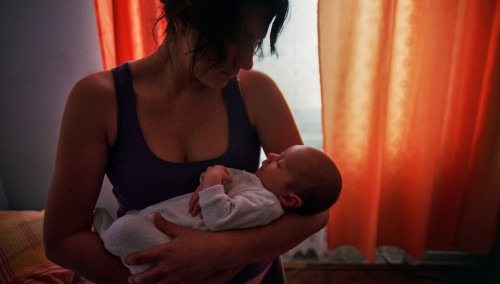Huba
Parasite
Huba beginnt mit einem Schwenk über eine Industrielandschaft zu Sonnenaufgang und einem medizinischen Check-up. In reduzierten Bildern wird die Geschichte eines pensionierten Fabrikarbeiters erzählt, den buchstäblich etwas auffrisst. Nach dem Verlust der sinnstiftenden Arbeit kann er alltäglichen Verrichtungen nicht mehr nachgehen, leidet unter Schlaflosigkeit. Eine junge Frau mit einem kleinen Baby zieht bei ihm ein, auch sie sprachlos, eigenartig distanziert zu ihrem Kind, doch – im Gegensatz zum Mann – dauernd hungrig. Sie wäscht, kocht und putzt, ansonsten scheint sie kein bestimmtes Ziel zu verfolgen. Einen kurzen Ausbruch aus ihrer Routine erlebt sie bei einem Motorcross-Rennen. Es ist wiederum die Frage nach der Wechselwirkung zwischen „den Verhältnissen“, der Gesellschaft und den Individuen, der Anka und Wilhelm Sasnal in ihrem vierten Langfilm nachgehen. Wie verändern sich Rollenbilder und Lebensmodelle mit den post-industriellen Nachwirkungen des Kommunismus? Hat sich überhaupt etwas verändert oder ist die Conditio humana per se eine entfremdete? (Claudia Slanar)
Parasite is a film about an ailing old man and a young mother. After retiring from the factory, the man, deprived of his daily routine, loses control over his time. Unable to eat or sleep, he starts drying up. The mother and child are like a single organism. Yet their relationship is, for all its closeness, one of dependence and inequality. The child, whose attachment to life is the strongest, is ravenous and needy. The woman, though enjoying a brief moment of freedom, is doomed to be a victim, while the old man has nothing to keep him going now that he can no longer work at the factory. When the three of them try to have a life together, they are like the Holy Family reversed. Brought together by chance, their lives intertwine in a web of oppression. The film follows their daily existence and slow decline.
Director's Biography
| ANKA SASNAL, born in 1973 in Tarnów in Poland, studied Polish literature and gender studies. As a screenwriter, editor, and filmmaker, she lives in Kraków together with Wilhelm Sasnal, who was also born in Tarnów in 1972 and studied architecture and painting. WILHELM SASNAL attracted international attention as a visual artist with a series of solo and group exhibitions in renowned international galleries and art institutions with paintings, comic books, drawings, photographs, and videos. From the first joint film project onwards, significant characteristics of their artistic collaboration are already visible: the intensive focus on language, texts, and literary models, which they transform into an image language that suits them. An explicit political stance can be noted in their films – thematically Anka and Wilhelm Sasnal circle around the current state of Polish society, rising xenophobia, the relationship of Polish society to the Catholic church, and especially the recent Polish past during the Second World War. A dystopian worldview, although not so much a pessimistic one – as they say themselves – may certainly be attributed to their work, along with an undisguised interest in the “dark” side of human beings. Anka and Wilhelm Sasnal are no strangers to the festival audience in Linz, as they have already been represented in the festival program twice in the past. In 2012, they won the main prize with It Looks Pretty from a Distance, which premiered in Rotterdam, and then returned with Parasite in 2014. // Films at CROSSING EUROPE Film Festival 2017 // Co-directed films: Słońce, to słońce mnie oślepiło (The Sun, the Sun Blinded Me, 2016), Huba (Parasite, 2014; CE’14), Aleksander (2013, doc), Z daleka widok jest piękny (It Looks Pretty from a Distance, 2011; CE’12), Świniopas (Swineherd, 2008) // Films by Wilhelm Sasnal: Afternoon of a Faun (2015, short), Columbus (2014, short), Inhuman Hunger (2014, short), Kacper (2010, short), Europa (2007, short), Brazil (2005, short), Marfa (2005, short) |
Tribute 2017
Anka Sasnal, Wilhelm Sasnal
Polen / Großbritannien 2014
color
66 Minuten
OmeU
Drehbuch Anka Sasnal, Wilhelm Sasnal
Kamera Wilhelm Sasnal
Schnitt Beata Walentowska
Ton/Sounddesign Igor Kłaczyński
Mit Joanna Drozda, Jerzy Gajlikowski, Wojtek Słowik, Anna Łącka-Szczygieł, Krzysztof Pabian, Ewa Pękalska, Barbara Starek
Produktion
Sadie Coles HQ 69 South Audley Street London W1K 2QZ Great Britain T +44 20 7493 8611 F +44 20 7499 4878 info@sadiecoles.com www.sadiecoles.com




